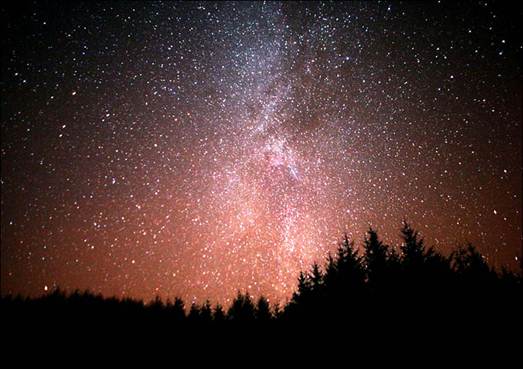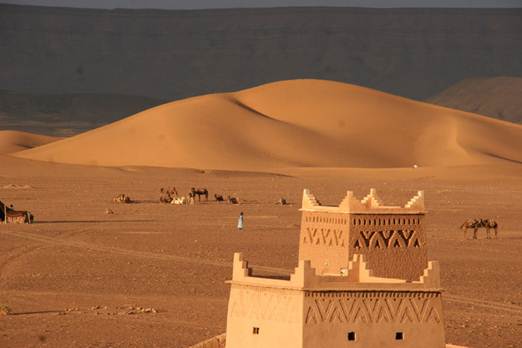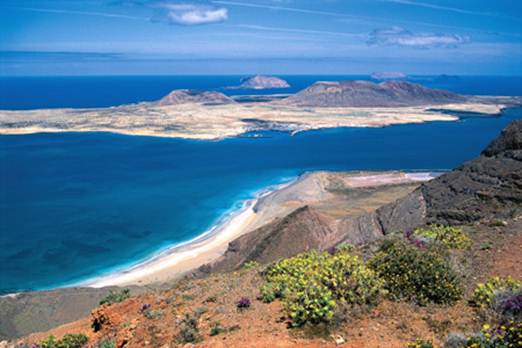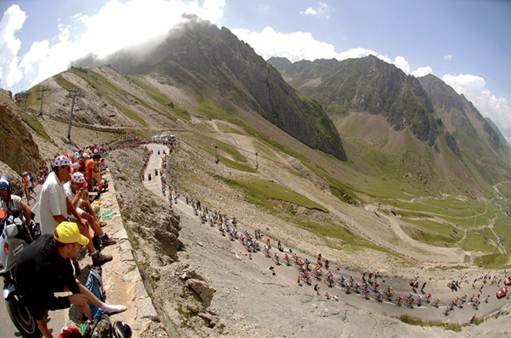UK
Founded in 1988 to campaign against light
pollution, the International Dark-Sky Association has given two areas in the UK
an International Dark Sky (IDS) status as a park or reserve. One is Exmoor
National Park, which was designated a Silver Tier reserve last year. The other
is Galloway Forest Park in south-west Scotland, an IDS park since 2009.

Galloway
Forest Park has been named the first Dark Sky Park in the UK
Set within the latter, just outside the
town of Newton Stewart, is Kirroughtree House, a grand 18th-century
mansion that us now a 17-room country-house hotel. It regularly hosts Stargazer
Weekends, which include both lectures and an after-dinner excursion in a
four-wheel-drive to observe the skies in the darkest part of the park. These
are led by Steve Owens, who used to run the planetarium at Glasgow Science
Centre and was the UK coordinator for the International Year of Astronomy in
2009.
Two-night Stargazer Weekends cost from $299
per person, including dinner and breakfast; www.mcmillanhotels.co.uk
Morocco
The first private observatory in North
Africa, SaharaSky, was the brainchild of the German hotelier Fritz Gerd Koring.
It is set on the edge of the desert, 240 miles south-east of Marrakech, overlooking
the dunes of Tinfou.
In the 1990s Koring built a faux Kasbah
outside the village of Tamegroute, near Zagora (which has an airport with
flights to Agadir and Casablanca), and opened it as a hotel. A keen amateur
astronomer, he was struck by the remarkable night skies of the area, which are
cloudless for about 300 days a year, and was determined to make a centre for
astronomy by opening the observatory on the roof of the building.

Kasbah
Hotel SaharaSky in Zagora
The Kasbah Hotel, as it’s known, is a
simple three-star and not the sort to win plaudits for the design of its rooms.
But its location in the Draa Valley, with views towards the dunes, is superb.
And Koring has amassed an impressive, ever-expanding collection of telescopes,
among them a Meade RCX 400, a Schmidt-Cassegrain, a Ritchey-Chretien and one
through which to observe the sun. Doubles from about $54, half-board; www.hotel-sahara.com
Tenerife
The Observatorio del Teide was established
in 1964 more than 7,545ft up the slopes of Teide, which at 12,198ft is the
third highest volcano in the world and the highest point on the Canary Islands.
The observatory was set up because the almost complete absence of light-spill
in Teide National Park means the stars shine brighter here than anywhere else
in Europe.
The accommodation is reserved for
scientists, but there are open days during the summer (see www.iac.es for details), and it is possible to
arrange visits between April and December, although not at night. (Research is
currently focused principally on the sun)

the
Canary Islands
A 20-minute drive away, however, is the
inexpensive, unpretentious Parador Hotel Canadas del Teide. It is the only
hotel on the slopes of the volcano’s mighty, often snow-capped cone, and has
its own Dobsonian telescope. The scenery is every bit as stupendous by day and
the desert landscapes and extraordinary rock formations rival the best in the
south-western USA.
Doubles from $150; www.paradores-spain.com
France
Known to cycling enthusiasts as one of the
most punishing stages of the Tour de France, the road that traverses the Col du
Tourmalet in the Pyrenees also leads to the Observatoire du Pic du Midi de
Bigorre. At an altitude of 9,439ft, it dates back to the 19th
century but acquired global importance in 1963 when NASA installed a 42in
Gentili Dome telescope to photograph the moon in preparation for the Apollo
missions. There are currently six telescopes at the site with mirrors up to
6.5ft wide.

the
road that traverses the Col du Tourmalet in the Pyrenees also leads to the
Observatoire du Pic du Midi de Bigorre
It’s a working observatory, but amateur
astronomers can stay in one of the eight simple double rooms: not that you’ll
want to waste time sleeping when you could be observing the sky through its
15in Schmidt-Cassegrain telescope in the company of a professional astronomer.
Doubles from $419, including an observatory tour, dinner and breakfast; www.picdumidi.com